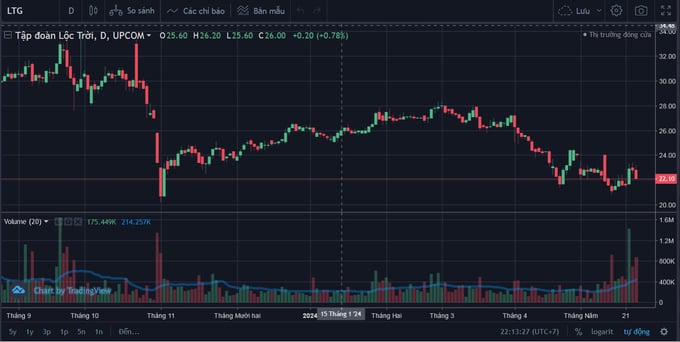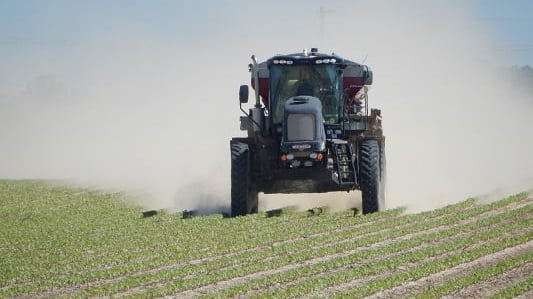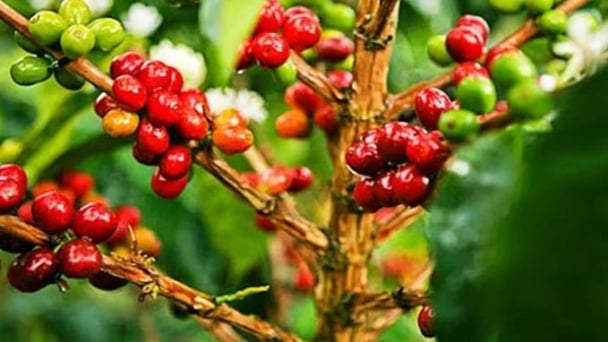June 20, 2025 | 14:23 GMT +7
June 20, 2025 | 14:23 GMT +7
Hotline: 0913.378.918
June 20, 2025 | 14:23 GMT +7
Hotline: 0913.378.918
As highlighted in one of our recent articles, several businesses within Vietnam's rice industry continue to incur losses and debts despite the record-breaking rice export volumes. A deeper analysis into this seemingly paradoxical scenario can reveal its underlying cause.
On May 21, the National Logistics Agency of Indonesia (Bulog) announced the bidding prices for 300,000 tons of 5% broken rice harvested from the 2023-2024 crop. Surprisingly, Vietnamese businesses submitted the lowest bidding prices compared to other international competitors.
Namely, among the 11 rice lots totaling 300,000 tons, the lowest bidding price was 564.5 USD per ton, offered by a Vietnamese business. Conversely, the highest bidding price was 658.5 USD per ton from Thai businesses; Additionally, bids from Myanmar and Pakistan were 621.5 and 633 USD per ton, respectively.
For Vietnamese businesses, the lowest bidding price was 564.5 per ton USD, with higher bids ranging from 579 to 582 USD per ton.
Despite Vietnamese businesses offering the lowest bidding price at 564.5 USD per ton, Bulog set the negotiation price at 563 USD per ton (C&F), which is below the lowest bid submitted by Vietnamese businesses.
Regular paddy is currently priced at between 7,500 and 7,600 VND per kilogram in the Mekong Delta region, with finished 5% rice priced at approximately 14,000 VND per kilogram at corresponding warehouses.
A representative from a rice business noted that if they were to accept Bulog's bid at 563 USD per ton (C&F), the net price would be approximately 13,200 VND per kilogram after deducting transportation and delivery costs. Consequently, rice businesses bidding at 563 USD per ton would incur a minimum loss of 800 VND per kilogram. Similarly, businesses bidding for two lots totaling 60,000 tons would incur nearly 60 billion VND in losses.
At this price level, winning bidders with an available stock of rice may immediately ship their product when needed. However, if businesses fail to procure enough rice or begin purchasing after signing contracts, they may face significant challenges due to supply constraints and price fluctuations in the market.
According to the leadership of the Vietnam Food Association (VFA), Vietnamese rice exporters have the habit of signing contracts with foreign partners before procuring rice domestically to fulfill their orders. This practice prevents them from responding to the rapidly rising domestic rice prices, which can exceed the prices agreed upon in the aforementioned contracts. Consequently, businesses are forced to renegotiate delivery times with their partners in response to price hikes, resulting in increased transportation and delivery costs throughout the supply chain, further exacerbating losses.
On the other hand, it has taken multiple years for Vietnamese rice exports to rival with Thai rice in terms of reputation and value. As a result, the low bidding prices for rice from Vietnamese businesses has sparked considerable concern.
In reality, businesses are entitled to determining the selling price of their rice products. However, if businesses resort to selling rice at low prices due to financial pressures, they can cause a market price erosion, thereby causing a downward trend in the industry's overall pricing structure.
According to industry experts, importers may use these low prices as reference points, preventing other businesses from selling their products at higher prices. Consequently, this scenario can cause considerable, industry-wide challenges.
Moreover, the continued decline in rice selling prices will have long-term impacts on the income of farmers and the value chain that extend beyond the immediate concerns of individual businesses.
Regarding the aforementioned rice bidding lots, Loc Troi Group has successfully won bids for 2 lots totaling 60,000 tons, at the price of 563 USD per ton. This marks the lowest bidding price among the winning businesses, and represents a decrease of 16 USD compared to the initial bid of 579 USD per ton.
Notably, another Vietnamese representative, Thuan Minh Company, won bids for 30,000 tons at a bidding price of 564.5 USD per ton.
In contrast, Vietnam's largest rice-exporting competitor, Thailand, had its lowest bidding price set at 649 USD per ton. Additionally, two other Thai businesses submitted bidding prices of 656.58 and 658.5 USD per ton, respectively.
Comparatively, the lowest bidding price from Vietnamese businesses differs by over 90 USD per ton from that of their competitors. When compared with current export rice prices announced by the Vietnam Food Association (VFA), Loc Troi's price remains lower by up to 25 USD per ton.

After announcing full debt repayment to farmers, LTG stocks experienced a notably positive session on May 22 (rising by 6%), before undergoing a downward adjustment in the week's closing session.
During the first quarter of 2024, alongside lackluster business performance, Loc Troi was involved in a controversy over outstanding debts to farmers in An Giang and several other regions within the Mekong Delta, amounting to nearly 500 billion VND.
After over two months, the controversy officially concluded on May 21 when Loc Troi Group announced that it had fully settled its debts, and issued apologies to affected farmers.
The leadership of Loc Troi Group admitted that in order to balance the cash flow for debt repayment, the company aggressively sold rice at low prices to generate funds. In addition, they accelerated rice export schedules to fulfill the company's contracts with the Indonesian and Philippine markets.
Amidst the pressing need for liquidity, if businesses opt to haphazardly sell at any price, coupled with resorting to high levels of financial leverage to sustain operations, they face an increased risk of falling into a cycle of losses and indebtedness.
Translated by Nguyen Hai Long

(VAN) The vice president of fertilizer with Stone X Group says increasing tensions in the Middle East are impacting global nitrogen prices.

(VAN) Coffee prices on June 19, 2025 dropped globally. Domestic coffee prices dropped by as much as VND 2,300, plunging to around VND 107,100 - 107,700/kg.

(VAN) Coffee prices on June 18, 2025, declined globally, with Arabica losing about 2.3%. Domestic prices fell by VND 1,600, down to VND 109,400 – 110,000/kg.

(VAN) Japan will release another 200,000 metric tons of rice from its emergency stockpile to tackle a doubling of prices since last year, Agriculture Minister Shinjiro Koizumi said on Tuesday.

(VAN) Coffee prices on June 13 declined sharply for Arabica. Domestic coffee market in Vietnam dropped by VND 2,000, trading at VND 111,500 – 112,300/kg.

(VAN) Coffee prices on June 12, 2025, continued to fall. Domestically, coffee prices decreased by another VND 2,000, trading at VND 111,500 – 112,300/kg.

(VAN) Coffee prices on June 11, 2025, fell sharply across global markets. Domestic coffee market dropped by VND 700, to the range of VND 113,500 – 114,300/kg.